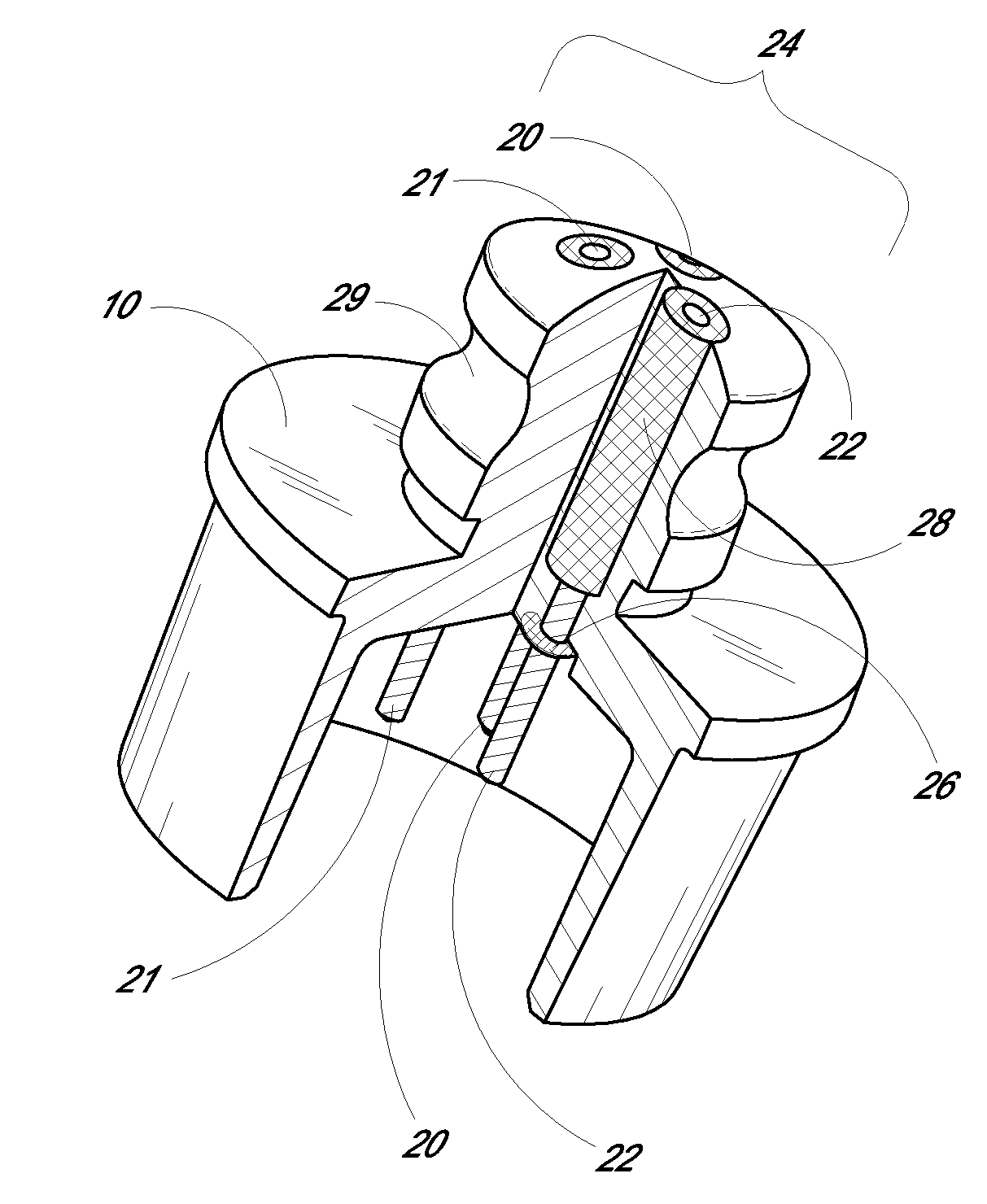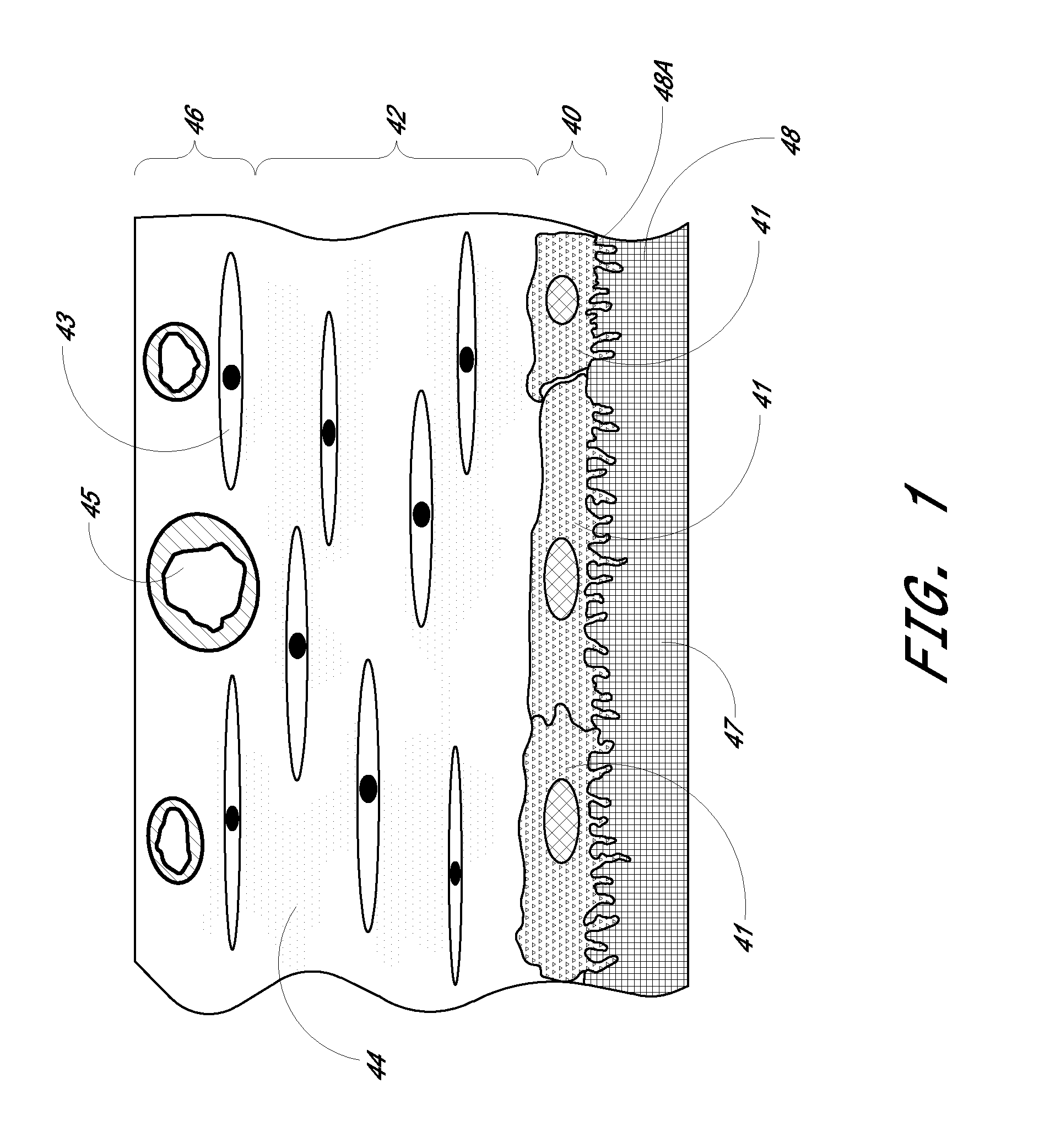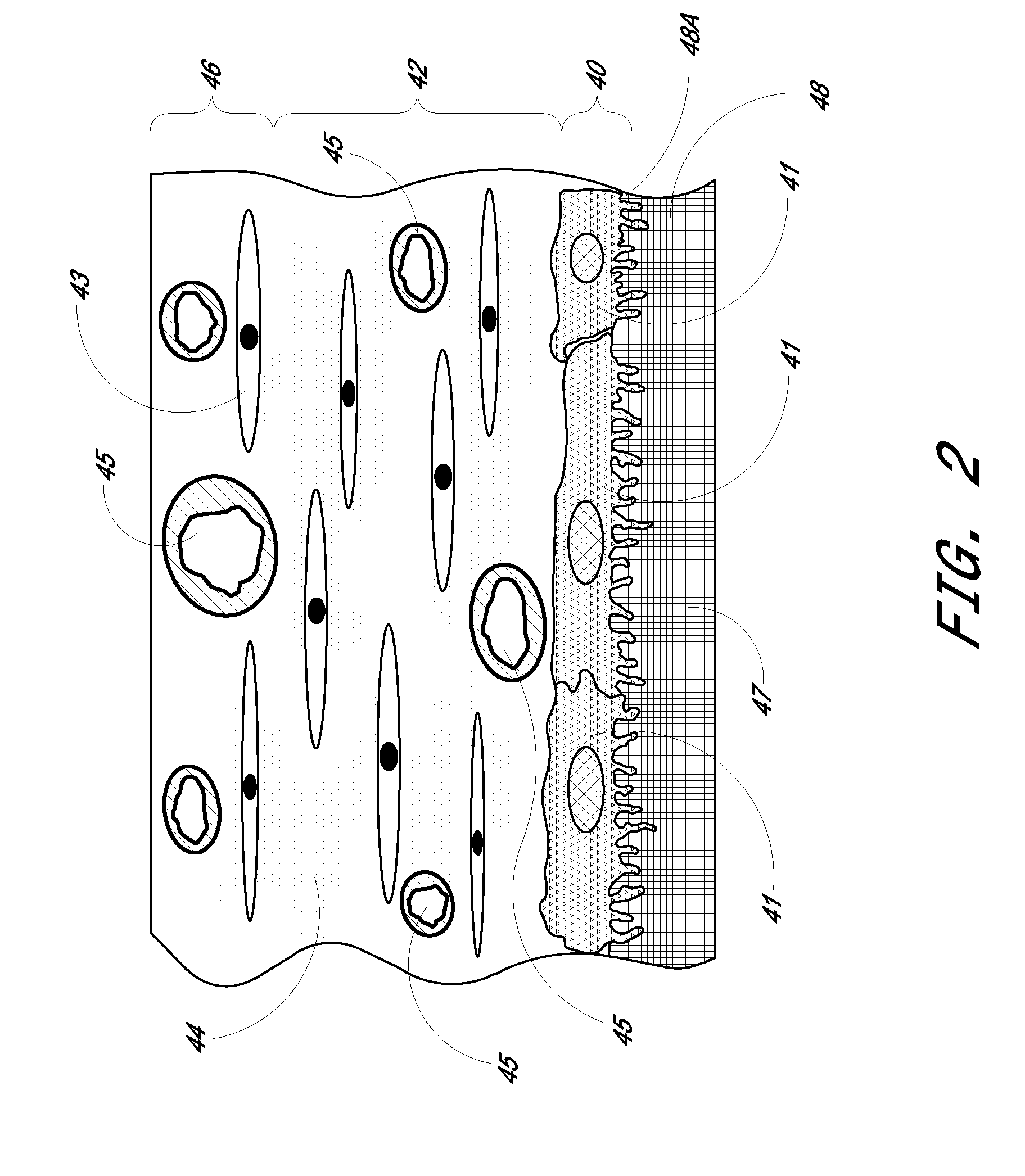Membrane for use with implantable devices
a technology of membranes and implants, applied in the field of biointerface membranes, can solve the problems of unable to provide data safely and reliably for long periods of time, unable to obtain continuous and accurate glucose levels, and unable to meet the needs of patients,
- Summary
- Abstract
- Description
- Claims
- Application Information
AI Technical Summary
Benefits of technology
Problems solved by technology
Method used
Image
Examples
example 1
Example 1
[0086]Preparation of Biointerface Membrane with Non-Woven Fibers
[0087]The barrier-cell disruptive domain may be prepared from a non-woven polyester fiber filtration membrane. The cell-impermeable domain may then be coated on this domain layer. The cell-impermeable domain was prepared by placing approximately 706 gm of dimethylacetamide (DMAC) into a 3 L stainless steel bowl to which a polycarbonateurethane solution (1325 g, Chronoflex AR 25% solids in DMAC and a viscosity of 5100 cp) and polyvinylpyrrolidone (125 g, Plasdone K-90D) were added. The bowl was then fitted to a planetary mixer with a paddle type blade and the contents were stirred for 1 hour at room temperature. This solution was then coated on the barrier-cell disruptive domain by knife-edge drawn at a gap of 0.006″ and dried at 60.degree. C. for 24 hours. The membrane is then mechanically secured to the sensing device by an O-ring.
example 2
Example 2
[0088]Preparation of Biointerface Membrane with Porous Silicone
[0089]The barrier-cell disruptive domain can be comprised of a porous silicone sheet. The porous silicone was purchased from Seare Biomatrix Systems, Inc. The cell-impermeable domain was prepared by placing approximately 706 gm of dimethylacetamide (DMAC) into a 3 L stainless steel bowl to which a polycarbonateurethane solution (1,325 gm, Chronoflex AR 25% solids in DMAC and a viscosity of 5100 cp) and polyvinylpyrrolidone (125 gm, Plasdone K-90D) were added. The bowl was then fitted to a planetary mixer with a paddle type blade and the contents were stirred for 1 hour at room temperature. The cell-impermeable domain coating solution was then coated onto a PET release liner (Douglas Hansen Co.) using a knife over roll set at a 0.012″ gap. This film was then dried at 305.degree. F. The final film was approximately 0.0015″ thick. The biointerface membrane was prepared by pressing the porous silicone onto the cast...
example 3
Example 3
[0090]Test Method for Glucose Measuring Device Function
[0091]In vivo sensor function was determined by correlating the sensor output to blood glucose values derived from an external blood glucose meter. We have found that non-diabetic dogs do not experience rapid blood glucose changes, even after ingestion of a high sugar meal. Thus, a 10% dextrose solution was infused into the sensor-implanted dog. A second catheter is placed in the opposite leg for the purpose of blood collection. The implanted sensor was programmed to transmit at 30-second intervals using a pulsed electromagnet. A dextrose solution was infused at a rate of 9.3 ml / minute for the first 25 minutes, 3.5 ml / minute for the next 20 minutes, 1.5 ml / minute for the next 20 minutes, and then the infusion pump was powered off Blood glucose values were measured in duplicate every five minutes on a blood glucose meter (LXN Inc., San Diego, Calif.) for the duration of the study. A computer collected the sensor output....
PUM
| Property | Measurement | Unit |
|---|---|---|
| thickness | aaaaa | aaaaa |
| thickness | aaaaa | aaaaa |
| thickness | aaaaa | aaaaa |
Abstract
Description
Claims
Application Information
 Login to View More
Login to View More - R&D
- Intellectual Property
- Life Sciences
- Materials
- Tech Scout
- Unparalleled Data Quality
- Higher Quality Content
- 60% Fewer Hallucinations
Browse by: Latest US Patents, China's latest patents, Technical Efficacy Thesaurus, Application Domain, Technology Topic, Popular Technical Reports.
© 2025 PatSnap. All rights reserved.Legal|Privacy policy|Modern Slavery Act Transparency Statement|Sitemap|About US| Contact US: help@patsnap.com



